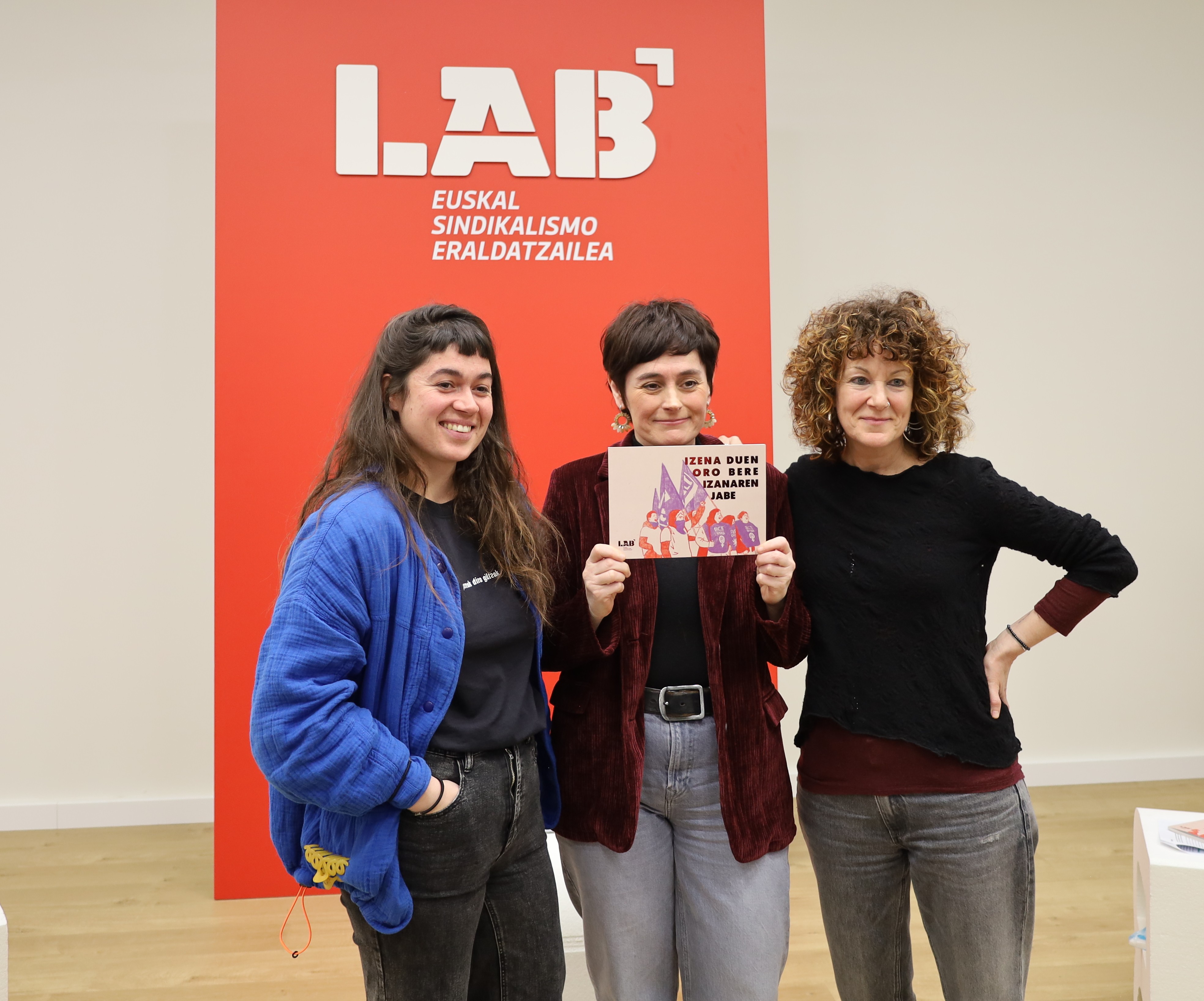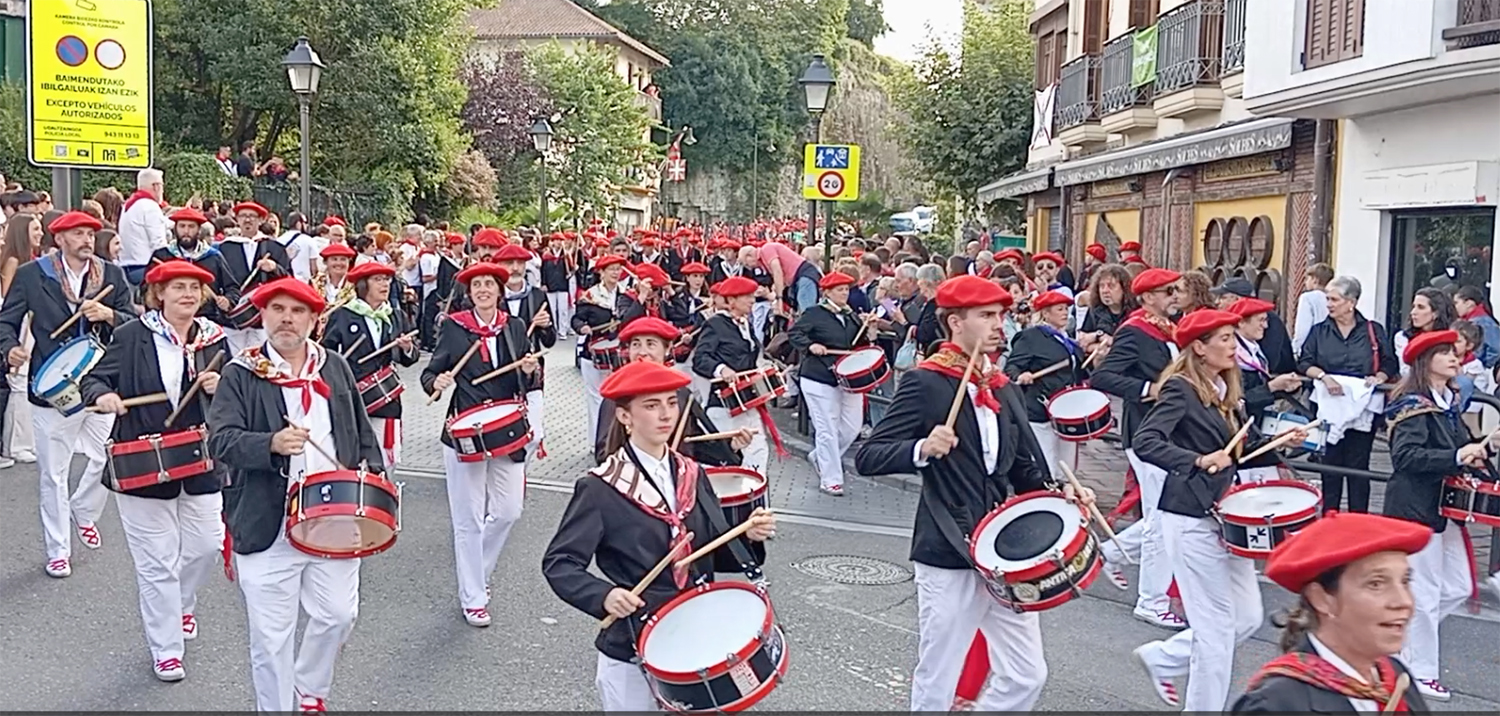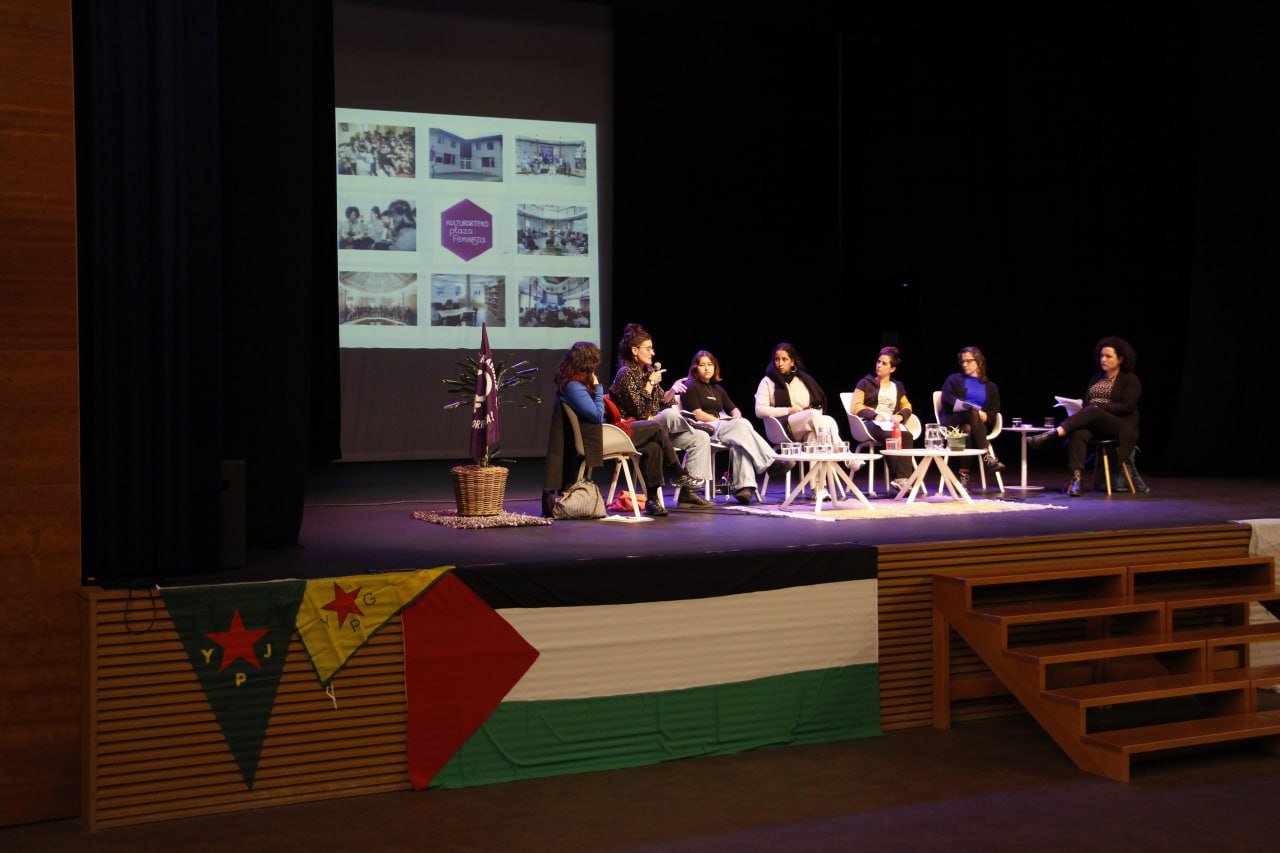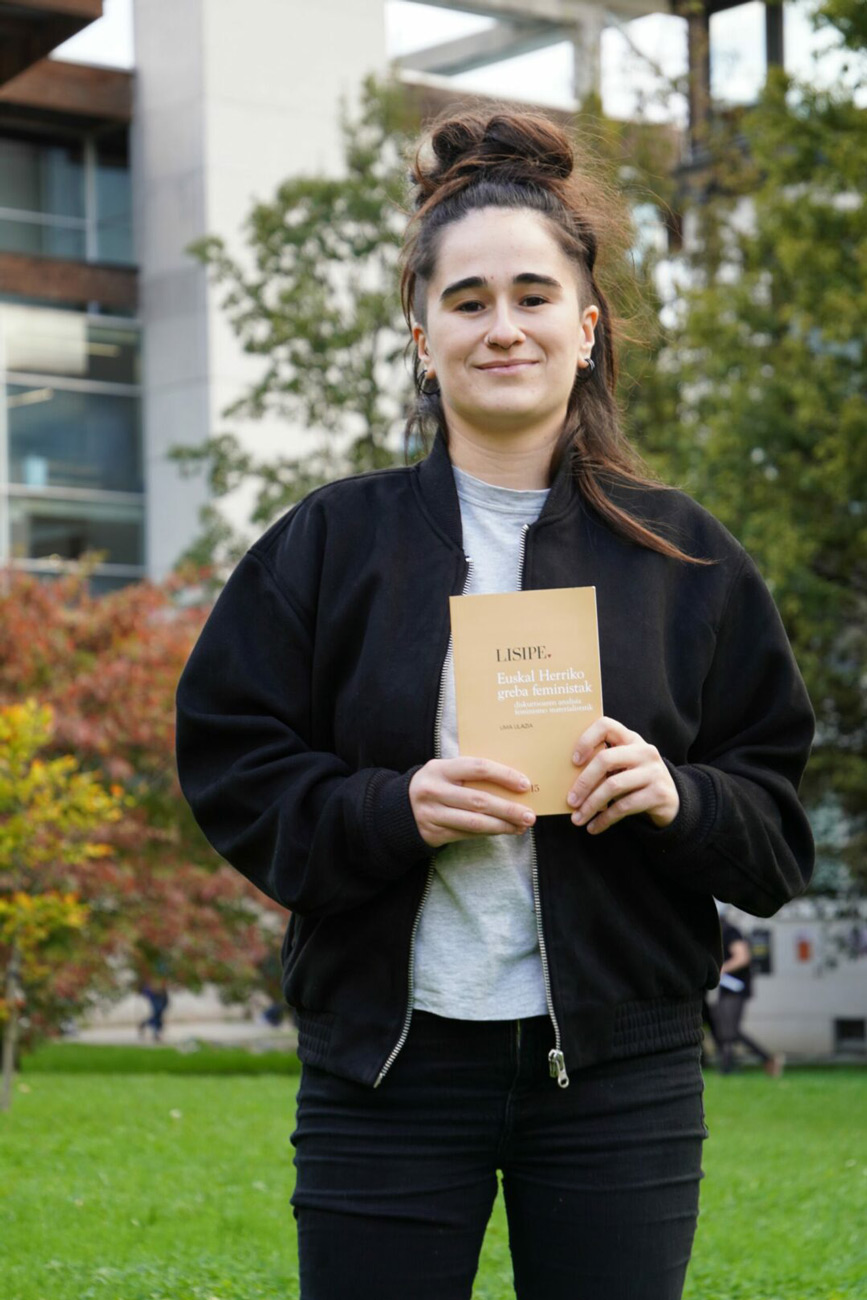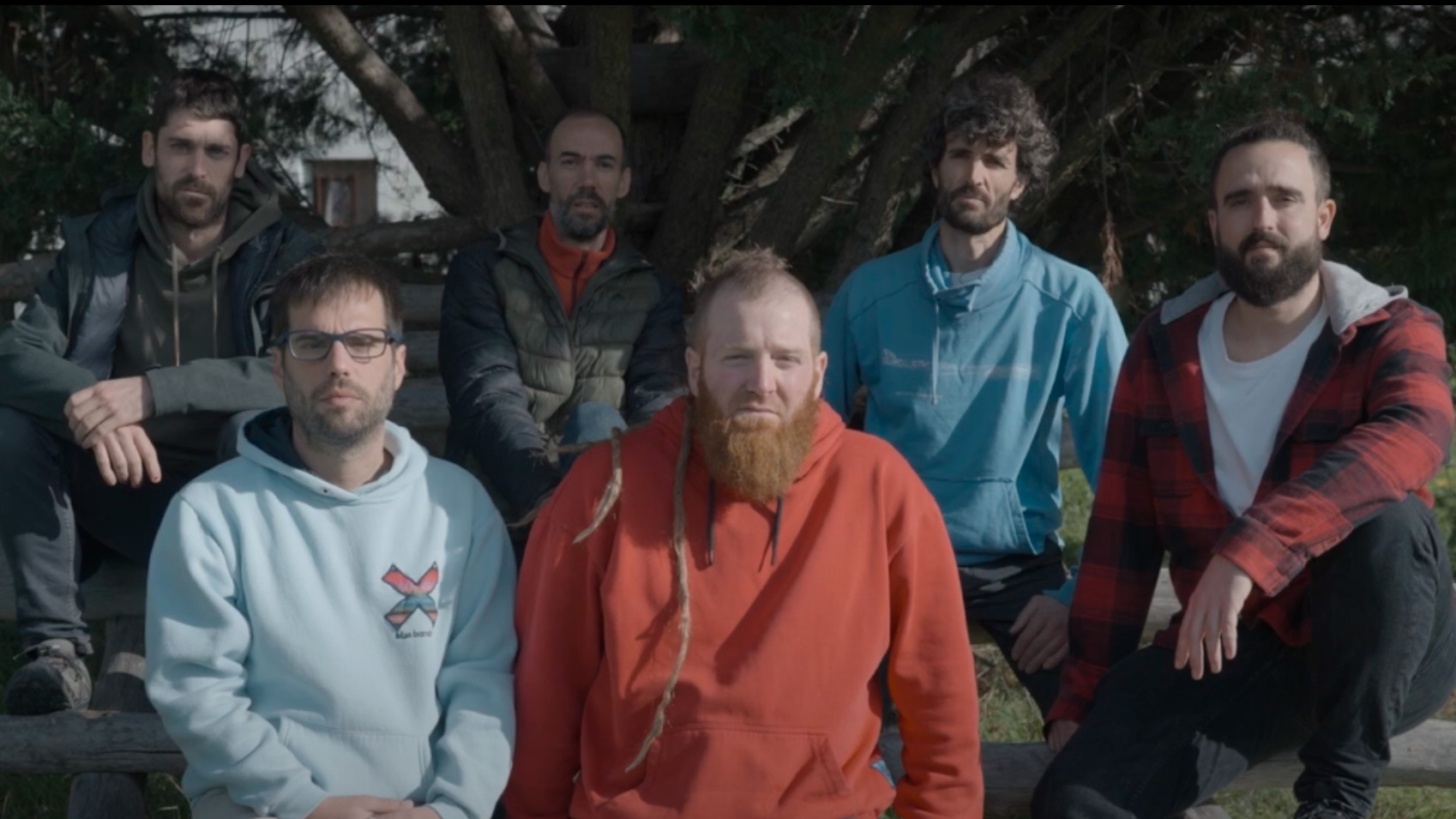"Men should create their own feminist projects"
- Encarna Bodelón (Barcelona, 1967) is a Doctor of Law and director of the research group Antigona. Co-director of the postgraduate courses “Gender and Equality” and “Male Violence” and its main lines of research, gender and law, and the criminal punishment of women, among others.
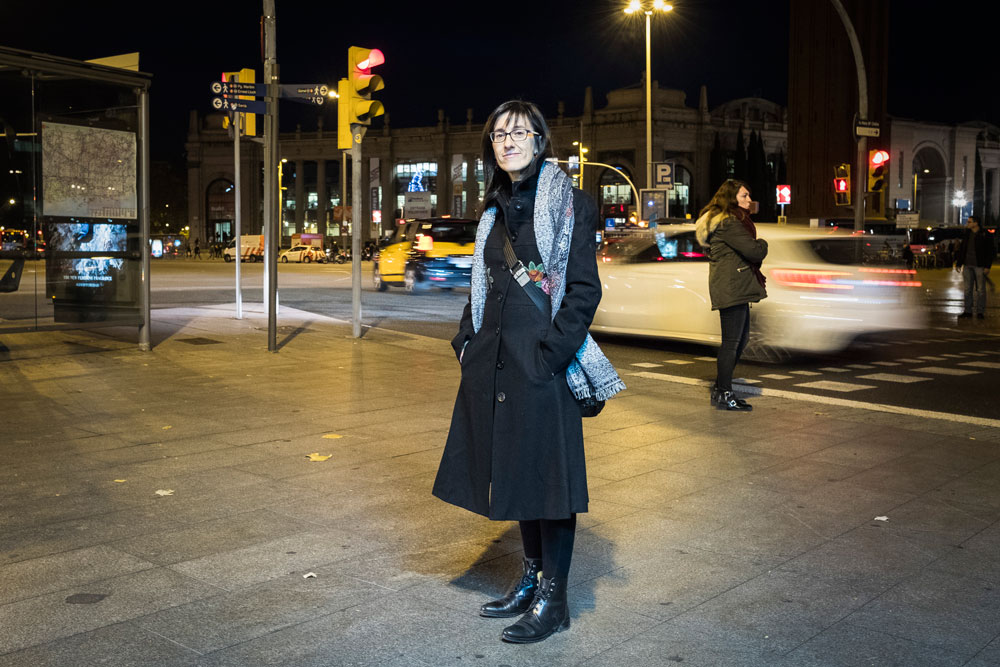
What do you think is the health of women’s rights today?We
have made international progress in recognizing women’s rights, but that doesn’t mean we have overcome sociological inequalities. In the European Union, for example, far from narrowing the gap between men and women, it is growing. For example, in Catalonia and the Spanish State there are many economic variables, such as the wage gap or unemployment among women. It's very disturbing.
How far has the situation improved in recent years?
In the field of law, the feminist conscience has grown greatly: In the 1990s, there were no feminist jurists, and now yes. But, for example, the law does not yet guarantee the rights of women. The difficulties are different today, but they remain the same. It often happens that as soon as a right is satisfied, a space of inequality opens up. The fight against rights is constantly evolving.
You are the director of the research group Antígona. When and how was he born?
15 years ago we created several professors of Philosophy of Law. Our aim from the beginning was to promote the teaching of law and feminist research. During all these years we have created several postgraduate specialties, among which is the only study that can be done in Spain on Machistan aggressions. On the other hand, we work on feminist law research.
How has the equipment changed?
We have trained a lot of people who, in the context of precariousness, have had to extricate themselves outside Spain to complete their studies. The team has been changing, therefore, but, despite the economic crisis that has hit the research so hard, we have managed to be in constant evolution, we are happy.
Feminism is often recognized to women. I guess there will be men in between. Less
than I would have liked. In Antigola, for example, 95% of us are women. In general, it is very difficult to attract men to feminist law. I would say that the trend is widespread, even in graduate students there are at most one or two men for every 25 students a year. Men have a serious problem and, rather than joining feminism, they should create their own feminist projects and make self-criticism. But unfortunately, there is currently no male feminist project.
Let's talk about the prison sentence. The imprisonment of the Generalitat's co-sellers has revived the debate between women and prisons. What do you think? The
issue of prisons in general is silenced, but there is nothing to say about the imprisonment of women. In Spain and Catalonia the incarceration of these inmates is around 6%, but the fact that they are reduced does not justify not talking about the issue. The imprisonment of women is particularly serious, as the problems affecting men are aggravated. For example, through the uprooting of families, economic problems or exclusion. But not only that, in women's jails, there's a big gender exclusion.
If Catalonia succeeds in being an independent state, what should the role of prisons be?
They should be closed. Women's is an interesting starting point, as the closure of all female prisons is very simple: 95% of women are incarcerated for small crimes against property and drug trafficking. It is therefore clear that prisons today do not cover functions. Prisons are the failure of society.
How can the prison system be changed?In
terms of infrastructure, there have been changes, but there has been no in-depth debate on the role of incarceration. It is essential to promote alternatives to the prison system and to change the context. For example, there are alternative convictions for a crime against property or imprisonment against drug trafficking. Does it make sense for a woman smuggling half a kilo of cocaine to remain in prison for six years? Is it a pity that it solves something in our society? Nothing. But not only that, everyone who commits a murder needs special attention, also to repair the damage he has done. Imprisonment does not solve anything.
Before concluding, what
are the main challenges in favor of equality?The struggle against the neoliberal patriarchal model that characterizes our system is arduous and we have a lot of work to do, but I am optimistic because I see feminism more and more alive. I think the main challenge now is working with men: we have worked a lot on prevention, but men have not moved. On the other hand, it is essential to socialize the care work and, finally, to take measures against the poverty of women.
“Zuzenbidea ikusmolde feministatik bizi dut. Ikasketak hasi ahala konturatu nintzen zuzenbidea neutraltzat jotzen den arren, gaur egun etnozentrismo juridiko gisa izendatzen dugun horretan oinarrituta egon dela betidanik. Beraz, 90eko hamarkadako hastapenetan Espainian zuzenbide formazio feministarik ez zegoenez, Holandara joan nintzen ikastera. Orduan konturatu nintzen emakumeon eskubideak ez daudela erabat bermatuta eta, ondorioz, erakundeak sortu direla geure beharrak kontuan hartu gabe”.
This wedge that the announcement on the radio Euskadi to replace the bathtub with a shower encourages the commencement of the works in the bathroom of the house. A simple work, a small investiture and a great change are announced. There has been a shift in toilet trends and a... [+]
Zalantza asko izan ditut, meloia ireki ala ez. Ausartuko naiz, zer demontre! Aspaldian buruan dudan gogoeta jarri nahi dut mahai gainean: ez da justua erditu den emakumearen eta beste gurasoaren baimen-iraupena bera izatea. Hobeto esanda, baimen-denbora bera izanda ere, ez... [+]
Goldatz talde feministak antolatua, ortziralean, urtarrilaren 3an, Jantzari dokumentala proiektatuko dute Beralandetan (17:30ean) eta biharamunean, urtarrilaren 4an, Berako bestetako tradizioak aztergai izanen dituzte Maggie Bullen antropologoarekin leku berean (10:30).
Ander Magallon, Mikel Irure eta Xabier Jauregi Metropoli Forala saioan egon dira maskulinitate berrien inguruan mintzatzen.











